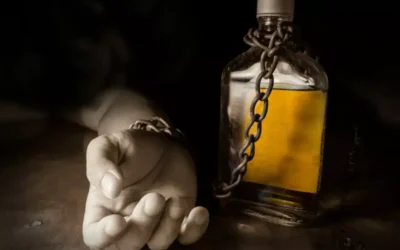Patients should be offered psychological care to address these symptoms. It can provide relief to many of the physical symptoms of opioid withdrawal including sweating, diarrhoea, vomiting, abdominal cramps, chills, anxiety, insomnia, and tremor. Brittany has been working in behavioral health since 2012 and is the Assistant Clinical Director at our facility.
Can you prevent withdrawal?
Research indicates that a combination of supervised benzodiazepine tapering and CBT can significantly aid older adults with chronic insomnia in discontinuing long-term benzodiazepine use. This approach has been shown to be effective in reducing withdrawal symptoms and improving sleep patterns, with benefits persisting for over a year post-treatment. More often called downers or benzos, depressants are some of the most commonly abused prescription medications on the market. What has become one of the most popular “party drugs” among people under 30; benzodiazepines are bringing with them, not only a probable blackout but also a brutal benzo withdrawal. Typically, users will pop a few of them alone, or in conjunction with stimulants, alcohol, opiates, and even hallucinogens.
Popular ‘Benzo’ drugs linked to suicide, brain damage — even if you stop taking them: study – New York Post
Popular ‘Benzo’ drugs linked to suicide, brain damage — even if you stop taking them: study.
Posted: Fri, 30 Jun 2023 07:00:00 GMT [source]
Quitting Benzos Cold Turkey
She has great experience with chemical dependency and co-occurring mental health diagnoses as well as various therapeutic techniques. Brittany is passionate about treating all clients with dignity and respect, and providing a safe environment where clients can begin their healing journey in recovery. The severity of benzodiazepine withdrawal can be influenced by a range of factors, with some individuals experiencing more intense and prolonged symptoms than others.
Benzodiazepine Detox and Withdrawal: Symptoms, Timeline, and Treatment
When used appropriately they are very effective in treating these disorders. However, when used for an extended period of time (e.g. several weeks), dependence can develop. Providing withdrawal management in a way that reduces the discomfort of patients and shows empathy for patients https://ecosoberhouse.com/ can help to build trust between patients and treatment staff of closed settings. As wementioned before, a lot of people choose not to get treatment for substanceabuse and addiction because, although they want to be free, the process ofwithdrawal sounds a little scary.
- Although these drugs vary in their effects, they have similar withdrawal syndromes.
- National Library of Medicine, these drugs are known to cause dependency and cognitive decline over time, making using them very difficult to manage.
- This is what allows the drug to remain in circulation, however, these drugs were made to be temporary band-aids that are supposed to be used in conjunction with aggressive psychotherapy and counseling.
- Medical treatments are available to help dampen the effects of these symptoms, which should be combined with counseling or therapy to help the victim cope with and overcome benzo withdrawal.
- Such a phenomenon is also seen in some individuals with alcohol problems in which such kindling is better understood.
- If these severe withdrawal symptoms occur, a person needs medical supervision.
- Prolonged exposure to benzos causes the brain during benzo withdrawal to adapt its chemistry to counteract the benzos’ sedative effects.
It is as if the nervous system has a “memory” of the withdrawal(s) and/or damage from a substance like benzodiazepines. This “memory” of prior withdrawal(s) and/or damage somehow remains “imprinted” within the nervous system. Indeed this process may well be the etiology of the increasing difficulty persons face the longer they continue to use benzodiazepines, even if only episodically. Many of the benzo withdrawal effects are “rebound” symptoms or symptoms that caused the need for benzodiazepine treatment. They include anxiety, sleep disturbances, panic attacks, trouble concentrating, heart palpitations, and excessive sweating.
Comprehending Benzodiazepine Withdrawal: Symptoms and Duration
Once they begin, they can last for months or even years depending on how long the sufferer has been abusing benzos and the strength of the benzos being abused. When these drugs are combined with other medications or recreational substances, it can cause even more of a problem for the user when they experience the benzo withdrawal. If a person who frequently uses these medications decides to suddenly stop, those receptors fly off the radar even farther. This is what commonly sends people into seizures, stroke, psychosis, and commas. Suicidal ideation is a serious benzo withdrawal symptom that can occur when changes in brain chemistry lead to the severe depletion of serotonin and norepinephrine. These are the same brain chemicals that when reduced, can cause depression, aggression, and other mood disorders.
As with any depressant, using benzos too often or in too large of a dose can significantly impact the brain’s ability to function normally. Prolonged exposure to benzos causes the brain during benzo withdrawal to adapt its chemistry to counteract the benzos’ sedative effects. This means that the brain during benzo withdrawal will feel overstimulated in the absence of benzos, and cause you to crave benzodiazepine withdrawal them to feel normal again. While these and other medications can be effective treatments for anxiety, insomnia, and related issues, they carry a serious risk of dependence, addiction, and abuse. The term “benzo” refers to a class of drugs containing benzodiazepine, a Schedule IV substance that is intended to be prescribed as a sedative to treat muscle spasms, anxiety, seizures, and insomnia.

Symptomatic medications should be offered as required for aches, anxiety and other symptoms. During withdrawal, the patient’s mental state should be monitored to detect complications such as psychosis, depression and anxiety. Patients who exhibit severe psychiatric symptoms should be referred to a hospital for appropriate assessment and treatment.
